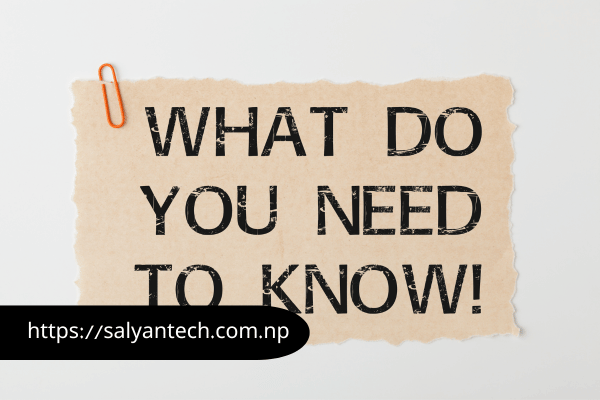Introduction to Car Insurance Companies
Ever wondered why your car insurance premium is what it is—or why some companies offer ridiculously low quotes? Welcome to the world of car insurance companies! These aren’t just businesses selling policies; they’re your financial safety net when the road takes an unexpected turn. Let’s unpack the essentials and go deep into what car insurance companies really offer, how they work, and how you can make smarter decisions.
Types of Car Insurance Coverage
Liability Coverage
This one’s the bare minimum in most states. It covers the other party’s medical bills and property damage if you’re at fault. Think of it as “I’m-sorry-I-messed-up” coverage.
Collision Coverage
If you slam into another vehicle (or a pole, no judgment), collision coverage pays for the repairs to your car.
Comprehensive Coverage
Mother Nature can be a bit dramatic. Comprehensive covers things like hail, theft, or that unlucky tree branch that decides to fall on your hood.
Personal Injury Protection (PIP)
This one’s for you and your passengers—covers medical bills, lost wages, and sometimes even funeral costs regardless of who caused the accident.
Uninsured/Underinsured Motorist Protection
Not everyone follows the rules. If you’re hit by someone with no (or not enough) insurance, this coverage steps in.
Top Car Insurance Companies in the USA
State Farm
Old-school reliable. Known for solid customer service and an extensive agent network. If you like a hands-on approach, State Farm is your friend.
GEICO
You’ve probably seen the gecko. They’re budget-friendly and great for tech-savvy folks who prefer to manage policies online.
Progressive
Known for their comparison tool and competitive pricing. They’re all about giving you choices and saving you cash.
Allstate
You’re “in good hands,” remember? Allstate has plenty of coverage options and strong accident forgiveness perks.
USAA
If you’re military or family, USAA is golden. Their rates and customer service are almost unmatched.
How to Choose the Right Car Insurance Company
Consider Your Budget
Some companies offer rock-bottom prices but skimp on service. Others cost more but deliver better support. Decide what matters most.
Evaluate Customer Service
Can you reach someone when you really need them? Check reviews and response times, especially during emergencies.
Understand Policy Flexibility
Do they let you tweak your policy mid-term? Can you pause it? Flexibility can be a game changer.
Check Reviews and Ratings
Sites like J.D. Power, Trustpilot, and the BBB can offer real insight into customer experiences.
Factors That Affect Your Car Insurance Rates
Driving History
Tickets, accidents, and DUIs? They’ll cost you. Clean record? Big savings.
Age and Gender
Younger drivers and males often pay more—blame the stats.
Vehicle Make and Model
That flashy sports car will cost more to insure than your grandma’s minivan.
Location
City drivers often pay more than rural ones due to higher accident and theft rates.
Credit Score
Believe it or not, your credit score can impact your premium in most states.
Discounts Offered by Car Insurance Companies
Multi-policy Discount
Bundle your auto with home or renters insurance and watch your premium shrink.
Good Driver Discount
Drive like a saint? Most insurers will reward you.
Good Student Discount
Young and pulling A’s? That report card might lower your bill.
Vehicle Safety Features
Cars with anti-theft devices and advanced safety features often get you better rates.
How Claims Work With Car Insurance Companies
Filing a Claim
Usually done online or via phone. Have your details and photos ready.
Claim Assessment
An adjuster reviews the damage, possibly inspects the car, and decides what’s covered.
Repairs and Reimbursement
Once approved, you can get your car fixed and either pay out-of-pocket (then reimbursed) or go through an approved repair shop.
Online vs. Local Car Insurance Companies
Pros and Cons of Online Companies
Online companies = lower rates, fast service. But they can be harder to reach when things go south.
Benefits of Local Agents
Want to talk face-to-face or need help understanding fine print? A local agent adds that personal touch.
Common Mistakes When Choosing a Car Insurance Company
Ignoring Fine Print
That “unlimited coverage” may not mean what you think. Read the details!
Choosing Based on Price Alone
Low premiums can mean high deductibles or poor service. Balance is key.
Not Comparing Multiple Quotes
Don’t marry the first insurer you meet—shop around!
Regulatory Bodies Overseeing Car Insurance Companies
State Departments of Insurance
Each state has its own rules, so check your state’s site for details.
NAIC (National Association of Insurance Commissioners)
They help standardize regulations and protect consumers nationally.
Trends Shaping the Future of Car Insurance
Usage-Based Insurance
Your driving habits tracked via app or device—drive safely, pay less.
AI in Claims Processing
Faster approvals, smarter fraud detection, and better customer service.
Eco-Friendly Insurance Options
Insurers are beginning to reward hybrid and EV owners with lower rates.
🧭 Conclusion
Choosing the right car insurance company doesn’t have to feel like navigating a maze. By understanding your needs, comparing options, and knowing what to look for, you can find a policy that fits both your budget and lifestyle. Remember, it’s not just about saving a few bucks—it’s about peace of mind every time you hit the road.
FAQs
1. What’s the best car insurance company for young drivers?
GEICO and Progressive are known for offering competitive rates and good discounts for young drivers.
2. Can I switch car insurance companies mid-policy?
Absolutely! Just make sure there’s no gap in coverage and that you won’t be hit with cancellation fees.
3. How do I lower my car insurance premium?
Shop around, ask for discounts, raise your deductible, and keep your record clean.
4. Is it better to go with a large or small insurance company?
It depends—larger companies may have more resources, but smaller ones can offer personalized service.
5. What should I do if my claim is denied?
Request a written explanation, review your policy, and consider appealing or consulting a lawyer.
Read Also: Understanding Health Insurance: Everything You Need to Know to Protect Yourself



